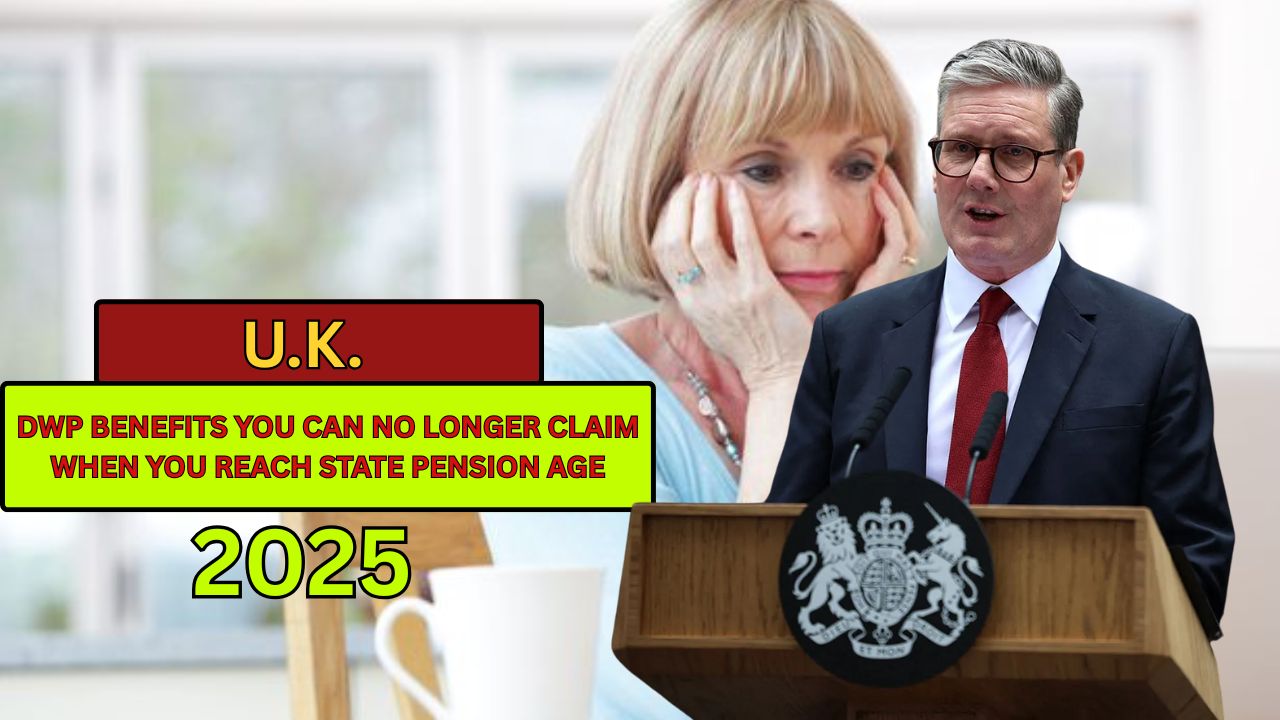Reaching the State Pension age in the UK marks a significant transition—not just in lifestyle but also in financial entitlements. While this milestone opens the door to new benefits, it also closes eligibility for a range of working-age support payments provided by the Department for Work and Pensions (DWP).
As of 2025, the State Pension age is 66 for both men and women, with plans to gradually raise it to 67 between 2026 and 2028. When you hit this age, several DWP benefits are no longer accessible for new claims. Here’s a comprehensive guide to what stops, what continues, and what you need to prepare for.
DWP Benefits You Can No Longer Claim at State Pension Age
The following benefits are only available to those below State Pension age and cannot be newly claimed once you’ve reached it:
1. Jobseeker’s Allowance (JSA) – Income-Based and New Style
Both versions of JSA—designed for people actively seeking work—end at State Pension age, even if based on National Insurance contributions.
2. Employment and Support Allowance (ESA) – Income-Based and New Style
ESA supports individuals unable to work due to illness or disability. However, both versions stop being available for new claims once pension age is reached.
3. Universal Credit
This benefit is primarily for working-age individuals. Pensioners are generally ineligible unless they’re in a mixed-age couple (one partner above, the other below State Pension age).
4. Income Support
This means-tested benefit for those with low or no income is not available to new pension-age claimants.
5. Bereavement Support Payment
Eligibility ends if the death of your partner occurs after you reach State Pension age.
6. Widowed Parent’s Allowance
This also stops at State Pension age and is replaced by pension-age benefits like Pension Credit.
7. Personal Independence Payment (PIP)
You can’t make a new claim after State Pension age, although existing claims may continue under specific criteria.
8. Disability Living Allowance (DLA) and Adult Disability Payment (Scotland)
These are being phased out or replaced and are not open for new claims once you reach pension age.

Benefits You Can Still Claim After State Pension Age
Although some benefits stop, several are either introduced or continue into retirement:
1. State Pension
This is the core retirement benefit, based on your National Insurance contributions. You can check your eligibility and projected payments at the GOV.UK State Pension page.
2. Pension Credit
Designed for low-income retirees, Pension Credit can top up your income and provide access to additional support like free NHS dental treatment.
3. Attendance Allowance
For pensioners with a disability or health condition requiring daily care. It’s not means-tested and can provide crucial support.
4. Carer’s Allowance
Still available for carers aged over State Pension age, although it may interact with other benefits like the State Pension.
5. Housing Benefit and Council Tax Reduction
Depending on your circumstances, you may still qualify for help with housing and council tax bills.
6. Winter Fuel and Cold Weather Payments
These help with heating costs during the colder months and are especially vital for elderly citizens. Check eligibility here.
7. Other Entitlements
These include:
- Free NHS prescriptions
- Free eye tests
- Free bus passes
- Senior railcards
- Free TV licence (for over-75s receiving Pension Credit)
Special Cases: Mixed-Age Couples
If you’re in a couple where one person is under State Pension age and the other isn’t, you may still be eligible for Universal Credit until both partners reach pension age. At that point, eligibility transitions to Pension Credit or other retirement-based benefits.
Planning Ahead
It’s critical to reassess your benefits portfolio as you approach State Pension age. Tools like the Turn2us Benefits Calculator or the Age UK benefits checker can help ensure you’re claiming everything you’re entitled to.
Final Thoughts
Reaching State Pension age means saying goodbye to some forms of support but opens the door to others. Understanding the switch is key to securing financial stability in retirement.
Stay informed by visiting trusted sources like:
This article has been carefully fact-checked by our editorial team to ensure accuracy and eliminate any misleading information. We are committed to maintaining the highest standards of integrity in our content.

Outside of work, he enjoys playing chess, following cricket, and writing short stories. His commitment to integrity and in-depth analysis strengthens OTE News’ mission of providing trustworthy journalism.




